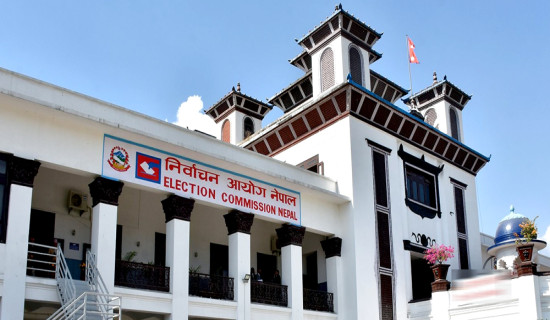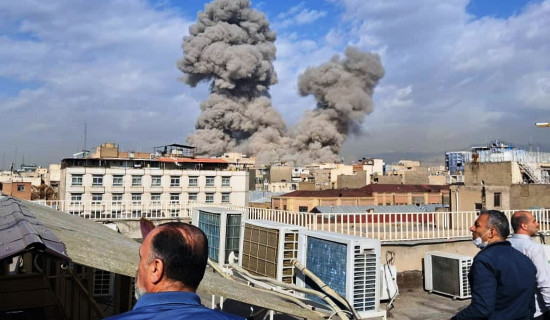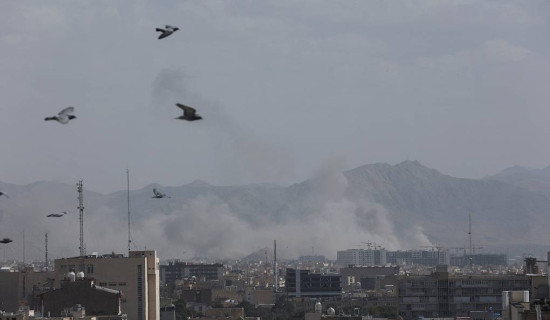- Sunday, 1 March 2026
Making HIV Response Inclusive
In the history of Nepal’s HIV response, political commitment and leadership are claimed narratives to address a wide range of social, economic, cultural and political barriers from a human rights-based approach. Although the government gives priority to HIV, this is hardly translated into a tangible increase in domestic resources. As a ground reality, there has been a heavy reliance on donor funding in the HIV response. In the changed socio-political context, the funding landscape is shrinking and it has obvious effects on the continuity and sustainability of essential HIV services.
I recently attended a national seminar related to HIV policy and legal environment, where a range of stakeholders representing political leaders, senior officials from the Ministry of Health and Population (MoHP), civil society networks, partners supporting HIV responses, and people living with HIV were present. Working in the field of HIV for more than two decades, I have witnessed that an inclusive HIV response has been an unfinished agenda aiming to address wider social, cultural, economic and political domains in the policy discourse.
Bureaucratic delays
Following the conversations, participants critiqued that policy and legal issues in HIV response are limited to consultation meetings, national seminars and conferences. In practice, these are not effectively implemented at large. Therefore, the growing voices from the people living with HIV and affected families are always loud and clear for a purpose. Witnessing the bureaucratic delays and discomfort experienced by people living with HIV, they raised a central question: Why is the draft HIV bill pending for years?
To put it more firmly, actionable commitments are critical in the search for an inclusive HIV response. “Despite years of critical discussions in meetings, the draft HIV bill is not progressing at all. This is one of our primary concerns and collective voices from the community of people living with HIV/” says Khagendra Khadka, chair of the National Association of People Living with HIV/AIDS in Nepal.
While there is noted progress in HIV response, HIV-related stigma and discrimination have creeping impacts on individuals, families and communities. People living with HIV often experience stigma and discrimination in their everyday life that profoundly impacts their emotional well-being, mental health and social protection in many ways. Such discrimination is a violation of human rights. More importantly, this constrains people’s ability to access HIV testing, care, and treatment.
Discrimination can be institutionalised through existing laws, policies and practices that negatively focus on people living with HIV and other socially excluded groups. Therefore, drawing the attention of the political leaders and policy makers to be accountable is urgent to address socio-legal barriers at the earliest. There is genuine demand for enabling policies and a legal environment that ensures their rights to health, education, employment, community engagement and dignified livelihoods in the society.
Dr. Sarbesh Sharma, Director at the National Centre for AIDS and STD Control (NCASC), points out that inter-ministerial coordination is crucial for the effective implementation of enabling laws and policies related to HIV response. It is a shared responsibility for actions. Despite social advocacy for inclusive HIV policies, effective implementation is a growing concern for all.
Time and again, civil society networks and partners are raising the concerns of social inclusion, equity and diversity as part of the HIV bill for yielding tangible progress. The social discrimination and stigma associated with HIV have differential effects not only on access to comprehensive HIV prevention, treatment and care but also legal and social protection services in the larger context of national response. Thus, it is necessary to continue social advocacy for the protection and promotion of the human rights of people living with HIV.
Evidence suggests that people living with HIV, key populations, indigenous populations, people in prisons, migrants, adolescent girls and young women are subject to societal pressures, social circumstances or structural inequalities and discrimination that may place them at increased risk of exposure to HIV and other negative health outcomes.
Raising public awareness on the harmful consequences of stigma and discrimination is critical in the HIV response. Collaboration with media, civil society, community groups, schools, hospitals and other partners is crucial for reducing stigma, promoting legal literacy, and mobilising communities for effective HIV prevention. Additionally, engaging parliamentarians, political leaders, policy makers, service providers, religious and traditional leaders is greatly helpful to address the existing gaps in policy and practice.
“We need to implement inclusive policies and laws that safeguard the social well-being of people living with HIV and the affected communities. We should not delay any more in forwarding the HIV bill for action,” says Ammar Bahadur Thapa, Chair of Education, Health, and Information Technology of the House of Representatives.
Unfortunately, there are limited efforts to review laws and law-enforcement practices within the health sector and beyond. It is worth exploring to better understand the wider impacts of inclusive health policies on the HIV response across time. One of the priorities is to identify existing socio-cultural and political barriers as well as opportunities to ensure socio-legal protection and justice for people living with or vulnerable to HIV.
Among many others, the new HIV strategic plan must focus on strengthening legal and policy environments to ensure laws that protect women and girls from gender inequality and violence. Provision of legal literacy, training to health care providers on human rights and medical ethics related to HIV is urgently needed. Apart from increasing access to HIV-related socio-legal services, there should be an effective mechanism to review and monitor the implementation of laws, polices and regulations in the context of HIV.
(Bhandari is a health policy analyst and has an interest in anthropology.)















